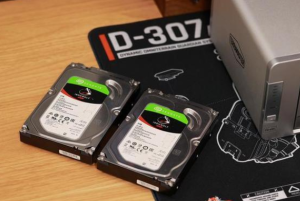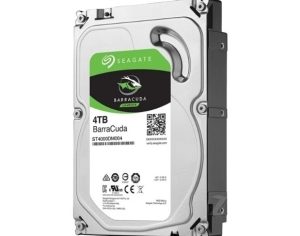When sourcing storage solutions for enterprise needs, understanding the three types of hard drives—HDD, SSD, and hybrid—is critical. As a global distributor of Seagate enterprise drives, HUAYI INTERNATIONAL LIMITED breaks down their differences, performance benchmarks, and optimal applications to help bulk buyers make informed decisions.
1. HDDs: Cost-Effective High-Capacity Storage
Traditional Hard Disk Drives (HDDs) remain popular for bulk storage due to their lower cost per terabyte. Seagate’s Exos X20 series, for example, offers up to 20TB with 7200 RPM speeds, ideal for data centers requiring large-scale archival storage. Key metrics (2025 market data):
Price: $0.02–$0.03 per GB (10TB+ models)
Sequential R/W: 220–250 MB/s
Latency: 4–6 ms
While slower than SSDs, HDDs dominate in cold storage, backups, and RAID configurations where throughput matters less than capacity.
2. SSDs: Speed and Reliability for Critical Workloads
Solid-State Drives (SSDs) leverage NAND flash memory, eliminating moving parts. Seagate’s Nytro 5000 series (PCIe Gen4) delivers:
Sequential R/W: Up to 7,000/4,000 MB/s
Endurance: 1.3 DWPD (5-year warranty)
Price: $0.08–$0.12 per GB (enterprise models)
SSDs excel in high-frequency transactional databases, virtualization, and AI/ML workloads. Recent advancements like QLC NAND now offer 30TB SSDs (e.g., Seagate Mozaic 3+ HAMR-based drives), blurring the capacity gap with HDDs.
3. Hybrid Drives (SSHDs): Balancing Performance and Cost
Solid-State Hybrid Drives (SSHDs) combine HDD storage with a small SSD cache (typically 8–32GB). Seagate’s FireCuda series (2.5″ for NAS systems) demonstrates:
Boot times: 30% faster than HDDs
Price: $0.04–$0.06 per GB
Effective for: Frequently accessed files (OS, databases) where pure SSD is cost-prohibitive. However, adoption is declining as SSD prices drop.
How to Choose Based on Workload
For bulk buyers, consider:
HDDs: Video surveillance (Seagate SkyHawk AI), archival (Exos CORVAULT)
SSDs: Real-time analytics (Nytro 3000 SAS), edge computing
SSHDs: Entry-level servers with mixed I/O patterns
Emerging Alternatives: EDSFF and Zoned Storage
The Enterprise & Data Center SSD Form Factor (EDSFF) is gaining traction, with Seagate’s “Ruler” SSDs offering 1PB in 1U racks. Meanwhile, Zoned Storage (SMR HDDs + ZNS SSDs) optimizes hyperscale environments by aligning data placement with access patterns.
Why Seagate Enterprise Drives?
Seagate leads in areal density (Mozaic 3+ achieves 3TB/platter) and offers exclusive features like:
Secure Erase for data sanitization
PowerBalance for energy-efficient data centers
24/7 predictive failure monitoring via SeaTools
As an authorized Seagate enterprise distributor, HUAYI INTERNATIONAL LIMITED provides:
Global stock across 12 warehouses (lead times under 72 hours)
Bulk pricing with 30%+ discounts for 100+ units
Full 5-year warranties with advance replacement
Customized logistics, including bonded storage for tax optimization. Contact our procurement team for 2025 Q4 allocation planning.
For verified Seagate OEM packaging and anti-counterfeit serials, request a quote with your required specs—capacities from 4TB to 30TB available with flexible MOQs.




